After hurricane Maria, signs of a mental health crisis haunt Puerto Rico
Two months after Hurricane Maria’s violent winds and screeching rains battered Puerto Rico, public health officials say signs of a mental health crisis are haunting the island
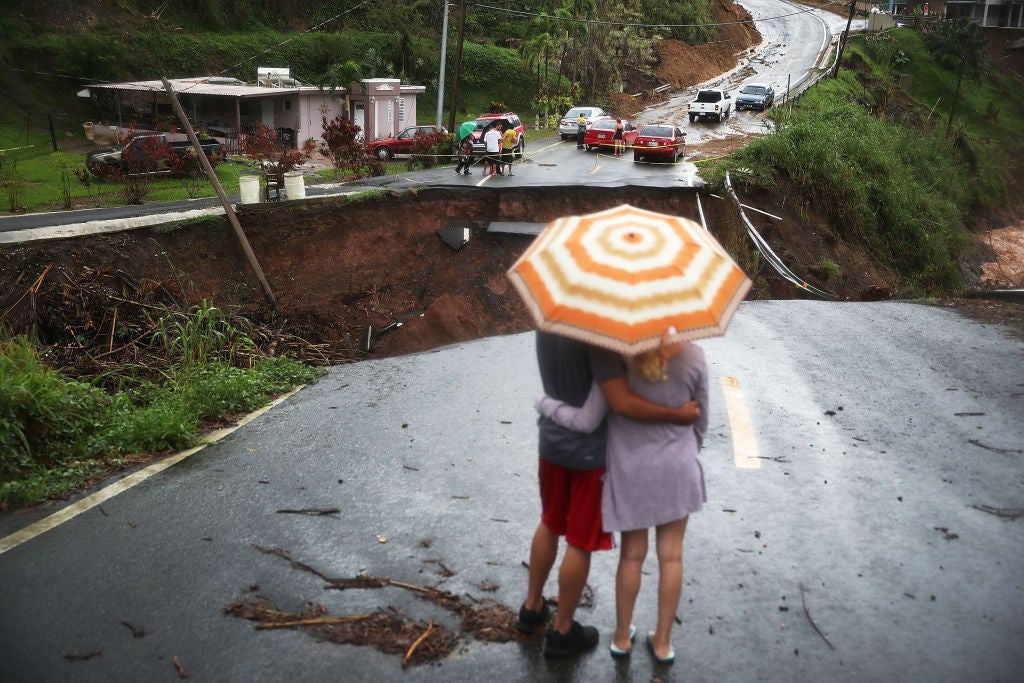
Your support helps us to tell the story
From reproductive rights to climate change to Big Tech, The Independent is on the ground when the story is developing. Whether it's investigating the financials of Elon Musk's pro-Trump PAC or producing our latest documentary, 'The A Word', which shines a light on the American women fighting for reproductive rights, we know how important it is to parse out the facts from the messaging.
At such a critical moment in US history, we need reporters on the ground. Your donation allows us to keep sending journalists to speak to both sides of the story.
The Independent is trusted by Americans across the entire political spectrum. And unlike many other quality news outlets, we choose not to lock Americans out of our reporting and analysis with paywalls. We believe quality journalism should be available to everyone, paid for by those who can afford it.
Your support makes all the difference.Her memories of the storm come in flashes: Neighbours’ screams, gushing water, swimming against the current with her son.
For Milagros Serrano Ortiz, a 37-year-old grandmother with long, curly hair, the nightmare did not end there. After two days of sheltering upstairs in a house across the street, she returned home to find the walls caked with mud and a vile stench emanating from her cherished possessions, which were rotting in the heat.
Anguished and overwhelmed, she recently confessed to a psychologist at an emergency clinic that she has begun to have disturbing thoughts and worries that she might act on them.
“Like what?” the doctor asked.
Like swallowing a bottle of pills, she said, “never waking up, and not feeling pain anymore”.
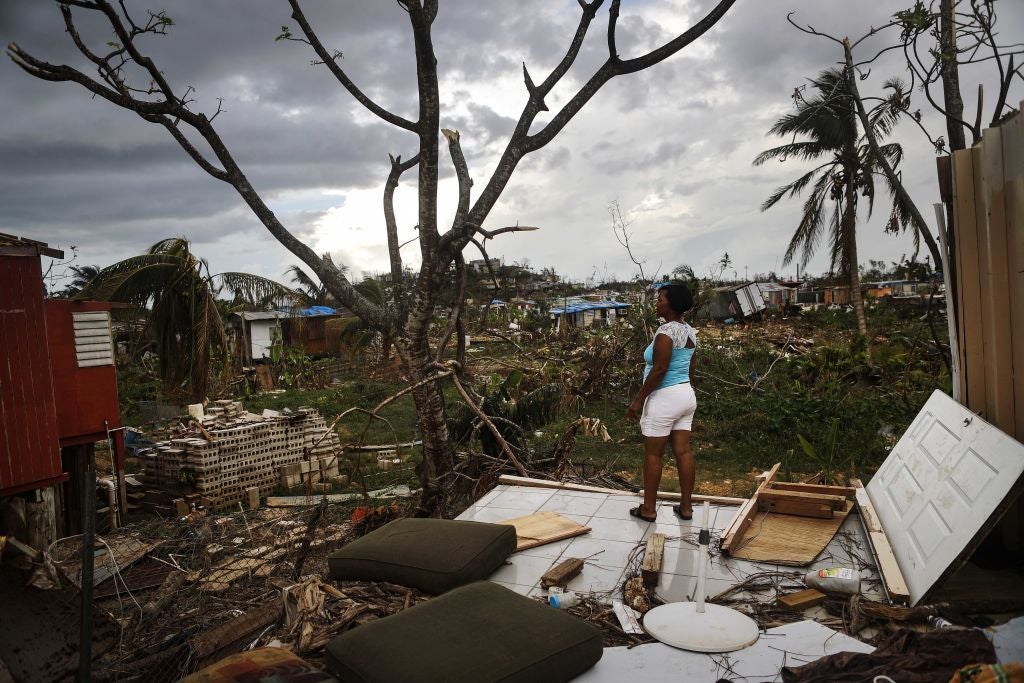
The violent winds and screeching rains of Hurricane Maria were a 72-hour assault on the Puerto Rican psyche. There are warning signs of a full-fledged mental health crisis on the island, public health officials say, with much of the population showing symptoms of post-traumatic stress.
Puerto Rico was already struggling with an increase in mental illness amid a 10-year recession that brought soaring unemployment, poverty and family separation caused by emigration. Public health officials and caregivers say that Maria has exacerbated the problem.
Many Puerto Ricans are reporting intense feelings of anxiety and depression for the first time in their lives. Some are paranoid that a disaster will strike again. And people who had mental illnesses before the storm, and who have been cut off from therapy and medication, have seen their conditions deteriorate.
“When it starts raining, they have episodes of anxiety because they think their house is going to flood again,” says Dr Carlos del Toro Ortiz, the clinical psychologist who treated Serrano Ortiz. “They have heart palpitations, sweating, catastrophic thoughts. They think ‘I’m going to drown’, ‘I’m going to die’, ‘I’m going to lose everything’.”
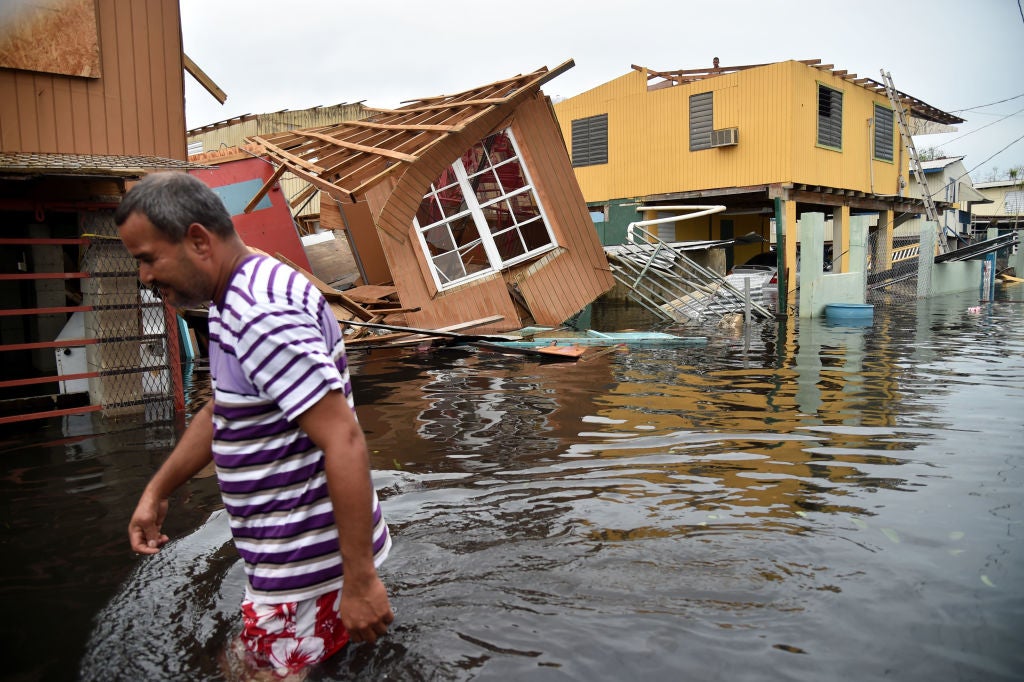
With the hurricane nearly two months in the past, the island is still in shock. Its residents are haunted by dozens of deaths caused by the storm, and many more life-threatening near misses. The reminders are inescapable. They lie in piles of rotting debris as tall as homes that still line many streets and in cellphones that are useless for checking on family members.
Returning to a routine is the most important step towards overcoming trauma, according to physicians and public health officials. But for most Puerto Ricans, logistical barriers like scarce water and electricity, as well as closed schools and businesses, make that impossible.
Since 20 September, when the storm came ashore at 6:15am, more than 2,000 calls have overwhelmed an emergency hotline for psychiatric crises maintained by the Puerto Rican health department – double the normal number for that period of time, even though most residents still do not have working phones. Puerto Rican officials say that suicides have increased – 32 have been reported since the storm – and many more people than normal have been hospitalised after being deemed dangerous to themselves or others.
At the emergency health clinic in Toa Baja, where Serrano Ortiz lives, Toro says that he has been frantically calling for help from colleagues in other cities because the facility is overrun with people in need of mental health care.
Because it is in a flood zone, Toa Baja was one of the worst affected areas in Puerto Rico. At least four people died and water levels peaked at more than 12 feet. The city of 80,000, west of San Juan, flooded each time it rained after Maria passed.
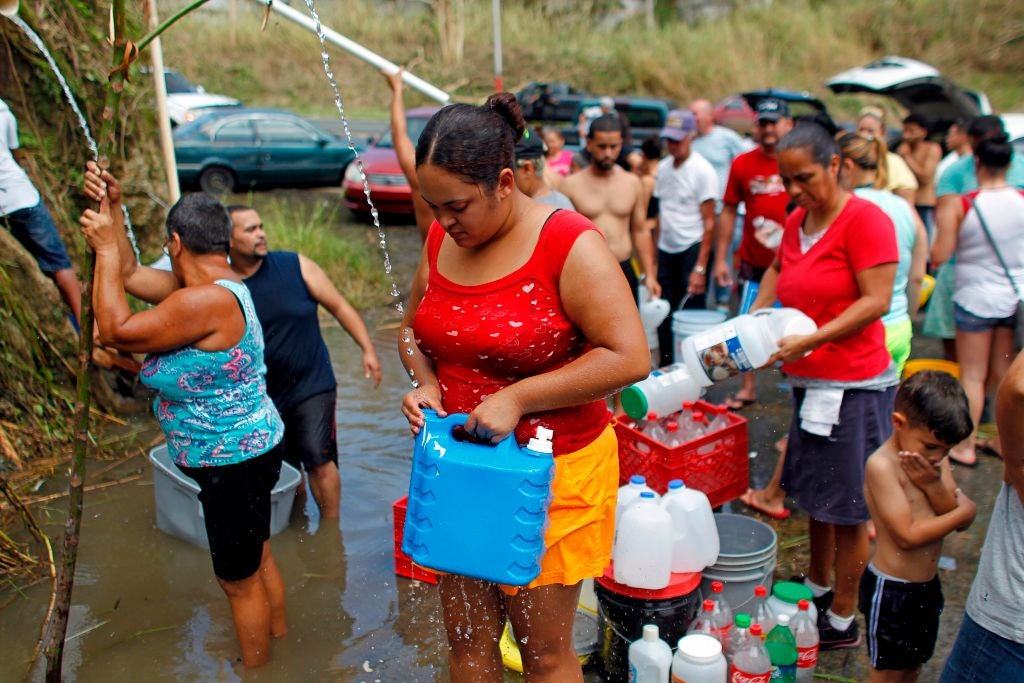
In his nearly 20 years of practising medicine, Toro says, he has never before hospitalised as many people with suicidal or homicidal thoughts in such a short time period. Of about 2,500 people who have been to the clinic since it opened two weeks earlier, more than 90 per cent were referred for mental health screenings, Toro says. He and other practitioners at the clinic have already referred at least 20 people to psychiatric wards elsewhere on the island.
“This is an emergency situation,” he says. “It’s still affecting us. There are people that we haven’t seen.”
Health workers are bracing for effects similar to those seen in New Orleans after Hurricane Katrina in 2005 and in Haiti after the 2010 earthquake, where cases of both moderate and severe psychiatric illnesses spiked. In New Orleans, many people experienced insomnia, cognitive impairment and short-term memory loss, which became known colloquially and among researchers as “Katrina Brain”.
Prolonged losses of electricity, water, communications or infrastructure have been linked to the onset of mental health crises, says Dr Domingo Marques, director of clinical psychology at Albizu University, a prominent graduate school of psychology on the island with clinics in two major cities. All of those elements have been relentlessly present in Puerto Rico.
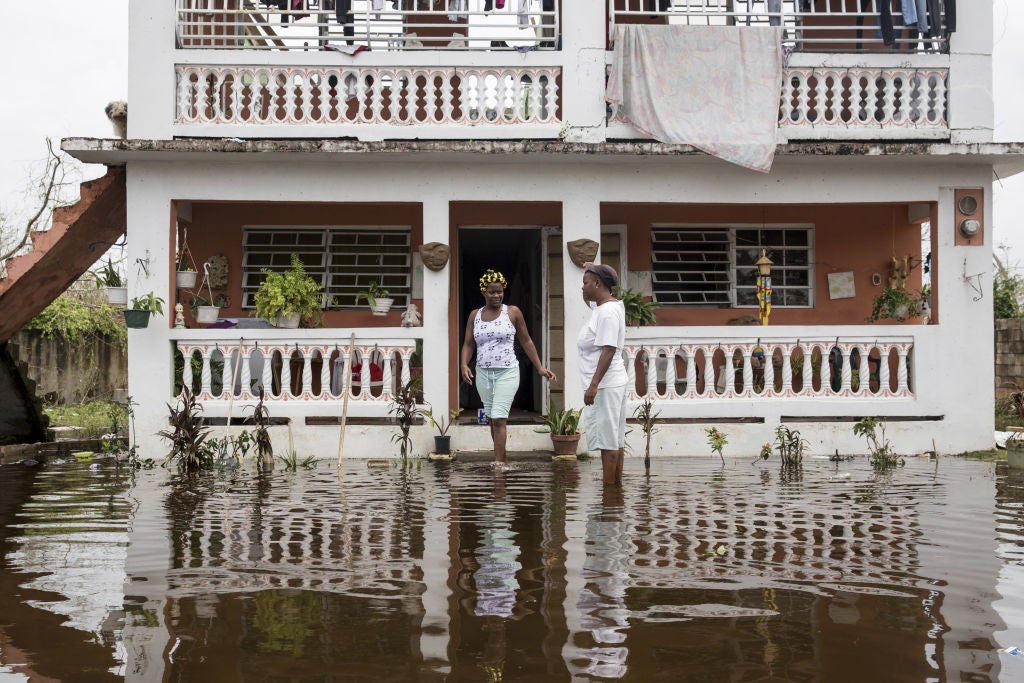
“And this is all happening at once,” he says. “What we have lost is the foundation that holds a society together.”
He said that Puerto Ricans would have to adjust their definition of normalcy in order to function: “It’s ‘I survived. My family didn’t die’. That’s the new definition of OK.”
This hurricane season has caused mental distress, and strained resources for treating it, throughout the Caribbean, according to reports from the US Virgin Islands, Dominica and Antigua.
The mental health division of the Puerto Rican health department received $3m (£2.3m) from the Federal Emergency Management Agency to coordinate a response to Maria, said Suzanne Roig, the administrator of the agency.
Its doctors have been knocking on doors in the worst-hit parts of the island and visiting emergency shelters where people who lost their homes have been living.
“We are trying to reach people to tell them that this crisis will pass,” she said, “and that they should not make permanent decisions.”
The agency also started an initiative to monitor social media, and staged interventions in a handful of homes of people who posted what appeared to be suicide notes.
During high-volume hours, its staff members have been taking on extra shifts and working overtime to respond to the increase in phone calls to the 24-hour emergency crisis hotline.
In addition to struggling with their own emotions, Roig says that distressed callers have reported children who have not spoken since the storm or cry inconsolably when it rains. And people with serious mental illnesses who have experienced psychotic episodes have been locked inside rooms by family members who do not know what else to do.
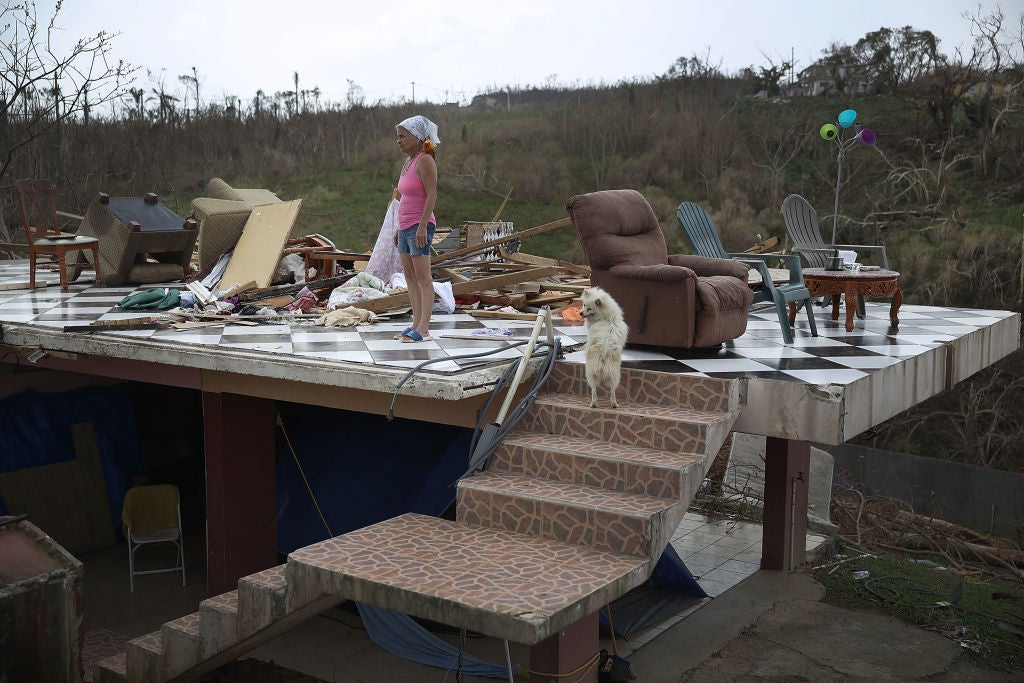
“People who have a prescription can’t get to a pharmacy,” Roig says. “If they can get to the pharmacy it might not be open. If it’s open, they might not have the medicine.”
Before the storm, Laura Rodriguez, 39, managed her borderline personality disorder without medication by relying on a strict routine: Early morning CrossFit workouts, long hours at work as an interior designer, going to bed early and never having guests at her home in Rio Piedras.
But since Maria hit, her gym has been closed and her therapist has not been working. Neither has she.
“I’m constantly anxious,” she says. “I get these urges to be violent and I can’t control it.”
Memories of the storm are also tormenting her. She had been trapped inside her apartment for two days with her boyfriend, her mother and her mother’s cat. They used plastic tarps, towels, bedsheets and pieces of wood to try to plug the windows where rain water was surging through.
Without access to any of the balms that she typically relied on to stabilise her mood, she was worried about resorting to self-harm, an impulse that she had struggled to control since she was 8 years old. “What if it’s like three months, four months?” she says. “I cannot do this for so long.”
For Serrano Ortiz, another threat to her mental and physical health looms.
Before the storm, a scan of her throat had indicated that she may have cancer for the second time. But she has not been able to get any more information about her prognosis because her doctor’s offices have been closed.
At the emergency clinic, she tells Toro that she might not have the energy to fight the disease again. When she looks in the mirror, she says, she sees in herself a reflection of her home – something dirty, smelly and tainted.
“I don’t feel like myself anymore,” she says.
© New York Times
Join our commenting forum
Join thought-provoking conversations, follow other Independent readers and see their replies
Comments